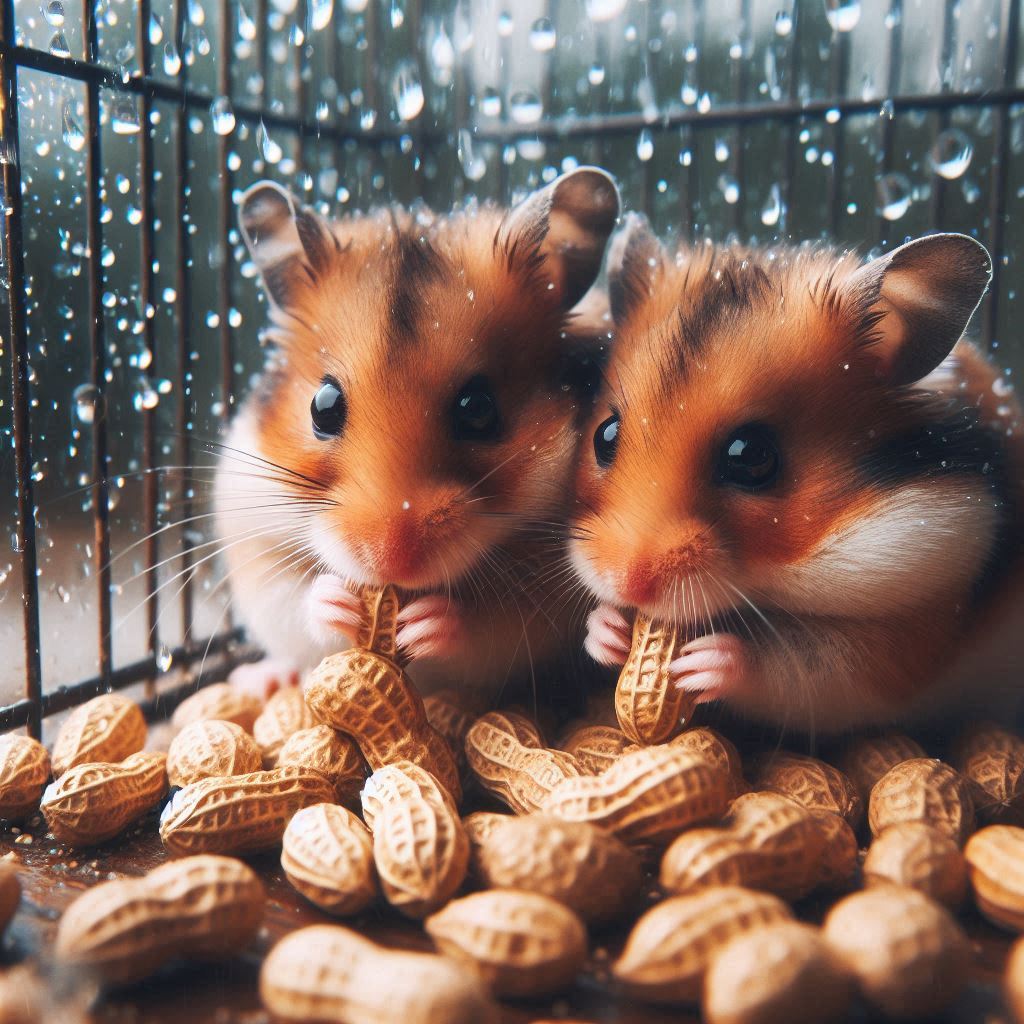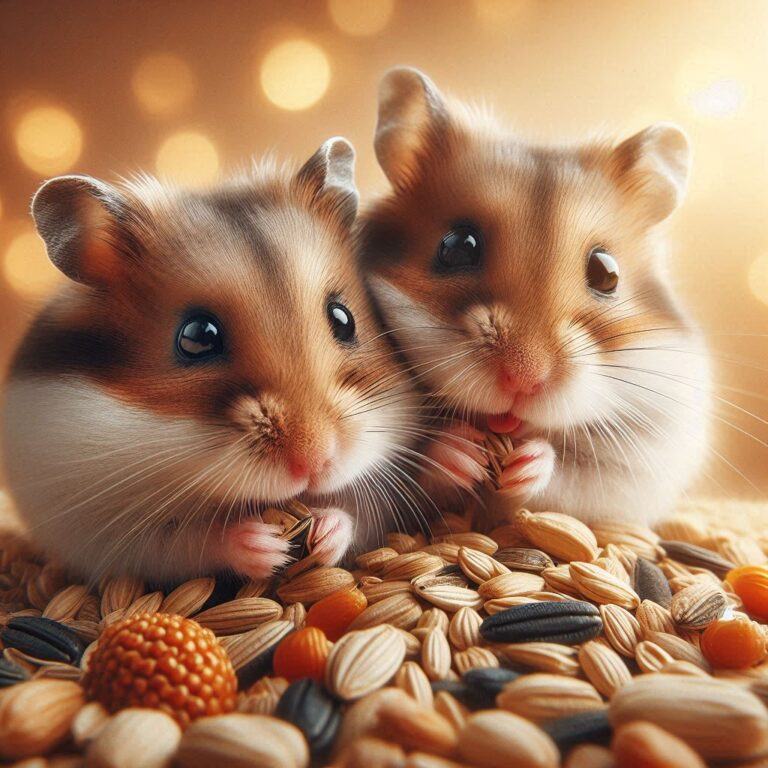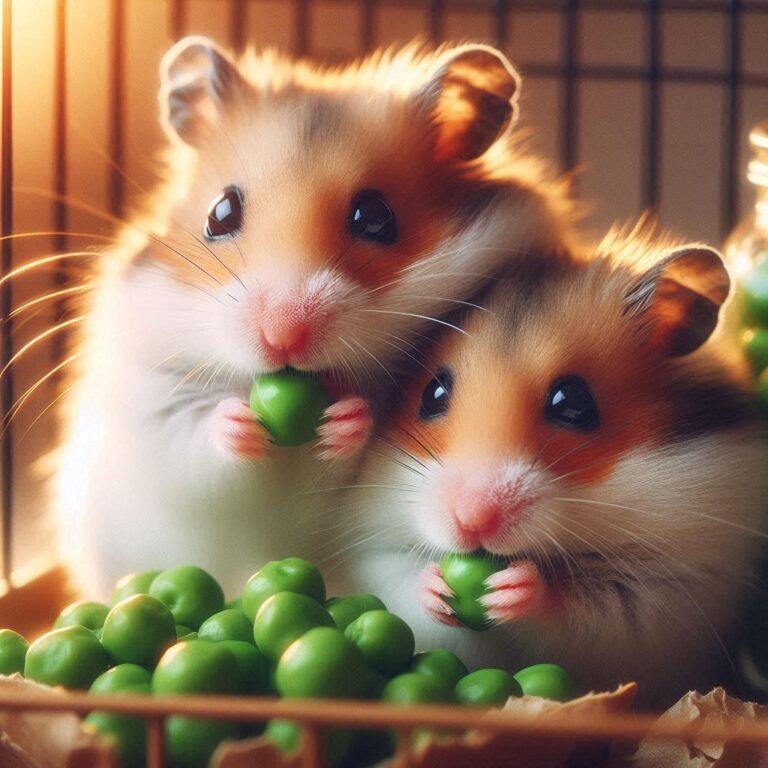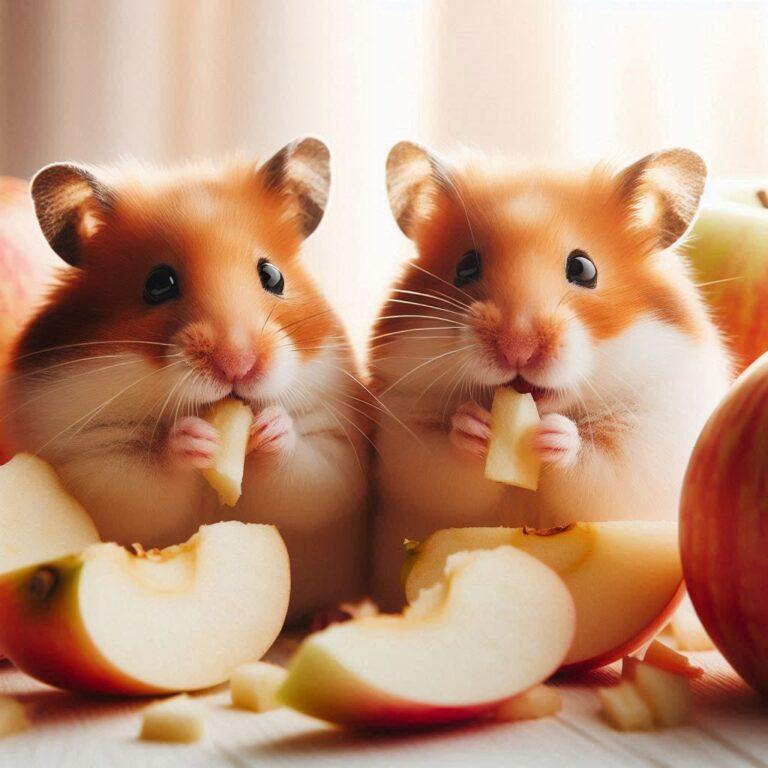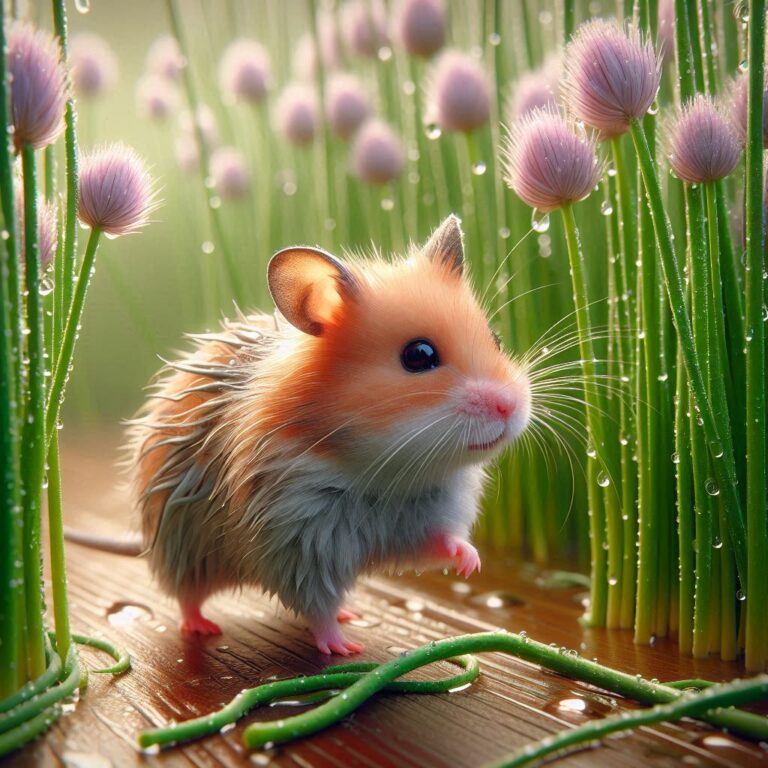Can Hamsters Safely Eat Peanuts
I’m often asked whether hamsters can safely snack on peanuts. The straightforward answer is yes, they can, but with a few important caveats. Peanuts are packed with protein and healthy fats, which at first glance, might make them seem like an ideal treat for your pet.
They provide energy and essential nutrients that can support a hamster’s health when integrated into an already balanced diet.
However, it’s not all good news. Peanuts can also be a choking hazard, particularly for smaller breeds of hamsters.
Moreover, just like humans, hamsters can suffer from allergies to peanuts, so vigilance is essential during initial feedings. Plus, the high-fat content can lead to unwanted weight gain if offered in excess.
When giving peanuts to hamsters, always choose unsalted, unflavored varieties to avoid health complications.
Seasonings and additives that are safe for humans can often be detrimental to a hamster’s well-being. That’s why sticking to plain peanuts is the best way to avoid these issues.
Keeping these points in mind ensures you can offer peanuts to your hamster safely, which leads us to the next pressing matter.
Feeding Your Hamster Responsibly
Knowing that peanuts can be a part of your hamster’s diet raises the question of how much and how often.
Moderation is KEY. While each hamster’s needs may vary, a good general rule is to offer peanuts as an occasional treat, not a staple. One or two shelled peanuts once or twice a week should suffice.
The dangers of overindulgence are not to be underestimated. Peanuts are high in fats and feeding your hamster too many can lead to obesity and related health concerns, such as heart disease and diabetes.
Additionally, peanuts can upset a hamster’s sensitive digestive system if consumed in large amounts.
When introducing peanuts, or any new food, observe your hamster closely. Start with a small piece and watch for any signs of digestive discomfort or allergic reactions.
If there are no adverse effects after 24 hours, you can gradually make peanuts a part of their treat rotation.
If peanuts aren’t right for your pet, there are numerous other snack options. Fresh foods such as carrots, strawberries, kale, broccoli, and whole grains and pellets can offer comparable nutritional value.
These alternatives not only contribute to dietary variety but also minimize the risks associated with peanuts.
A Balanced Diet for Your Furry Friend
You now know peanuts can be a treat for hamsters, but the cornerstone of their health lies in a balanced diet.
Hamsters thrive on a varied menu that mirrors the diversity of their natural foraging. A diet rich in grains, seeds, fresh fruits, and vegetables has plenty of nutrients and keeps meal times interesting.
You shouldn’t underestimate the importance of dietary variety for your hamster’s well-being. Just as you enjoy different foods, your hamster also benefits from trying new tastes and textures, leading to holistic health and happiness.
To create a well-rounded meal plan, start with a high-quality hamster mix as the base. Consider the occasional peanut as a high-value treat, but also introduce other safe foods such as carrots, broccoli, and apples.
Remember to introduce new foods slowly to prevent digestive upset.
If you’re looking for professional advice or have concerns about your pet’s diet, don’t hesitate to consult a veterinarian familiar with small animals.
They can offer guidance tailored to your hamster’s specific dietary needs, ensuring those tiny nibbles are as nutritious as they are delicious.

